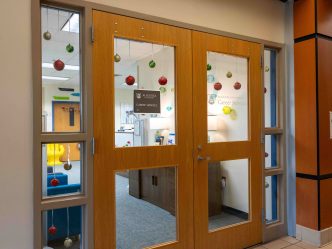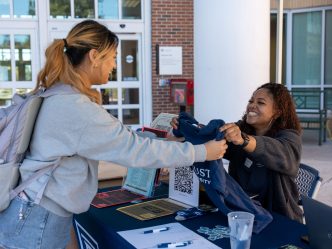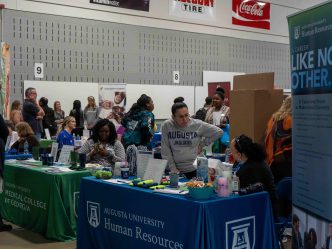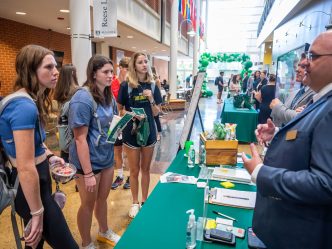On Dec. 12, 2015, approximately 600 Augusta University graduates walked across the stage, received diplomas and stepped into their futures.
Some graduates had already secured employment, while others were still on the hunt and still others were planning on continuing their education.
They weren’t alone.
This year, more millennials, adults aged 18-34, entered the workforce than ever. In fact, according to the Census Bureau, this year, millennials in the workforce are expected to outnumber baby boomers for the first time 75.3 million to 74.9 million.
Augusta University Career Services recognizes the importance of these numbers and is working on how to best help Augusta students develop rewarding careers.
Their solution? Work with students earlier on.
“We try to reach students earlier to help them learn what their values and interests are,” said Melissa Hudson Hall, career advisor. “If a student is clear with their motivation, their values and how that may align with their interests, we can help them look at what options are available. If this happens earlier in a college career, then students are a lot more confident moving forward.”
There is also data that supports the idea that millennials are looking for certain things out of a job that prior generations did not. Older generations value stability. It was common for a person to begin a career with one company and retire with the same company. This is not the case for millennials.
In 2014, the Bureau of Labor Statistics reported that young adults born in the early 1980s held an average of 6.2 jobs from age 18 to age 26.
“Most professionals are moving around, and it’s okay,” Hall said. “What’s important is that students are honest about that. We teach them how to talk about that and how to explain their goals.”
What this means is that new graduates don’t have to fit into a box. This is especially good news for students who struggle to align their major with a job.
“With our liberal arts undergraduate focus, you can start with an undergraduate degree that can take you anywhere,” Hall said. “We want to give our students permission to enjoy the flexibility that people say is important to millennials.”
Hall has also found that millennials want a manager who is going to be a supporter, coach and cheerleader. However, as more millennials enter the workforce, they’re likely to be working with managers from other generations. This can sometimes cause tension.
A study by PwC, an auditing and consulting firm, found that 38 percent of millennials reported they feel that senior management does not relate to younger workers, and almost half felt their manager didn’t always understand the way they use technology at work.
“You have more generations working together than you have in the past,” Hall said. “That can sometimes cause confusion and miscommunication.”
Hall said she and the faculty and staff working at Augusta University Career Services want to ensure that students are equipped to work with people of all generations.
“Take the time to understand your boss,” Hall advises. “Ask open-ended questions. Many times it’s not difference of work values but difference of communication styles. You can practice this by interacting with your professors.”
Students are encouraged to partner with faculty and staff on projects and to take advantage of job shadowing and internship opportunities.
“These are ways to ensure that students develop critical skills to work effectively with employers, but they’ll also have the means to clearly articulate what they’re looking for and negotiate that with their employer, no matter the generation,” Hall said.
All of which helps employees find a job that is both financially rewarding and emotionally fulfilling.
“It’s not just about working,” Hall said. “It’s about how you can get the best out of life.”
The PwC study mirrors Hall’s experience with alums. It found that 95 percent of respondents felt that a work/life balance was important to them.
Therefore, Hall wants her students to clearly understand what they’re looking for and where they fit.
“We help students evaluate the fit of different opportunities based on their stated desires and help them make critical decisions so down the line they aren’t in an environment that isn’t a fit for them,” she said.
For more information about the Career Services contact them at careercenter@gru.edu or visit them in University Hall, 2nd floor, suite 210.
 Augusta University
Augusta University




